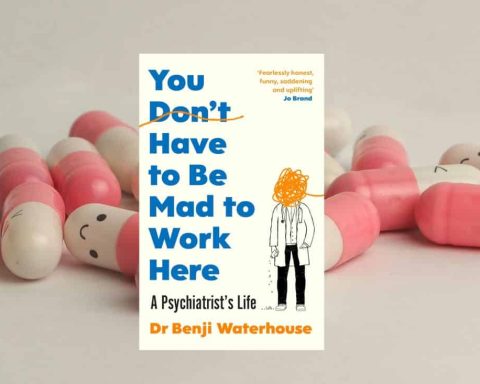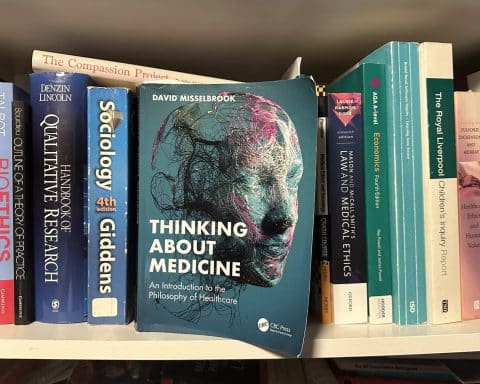Martin Edwards is a retired GP from South London and an Examiner in History of Medicine at the Society of Apothecaries.
Anjna Harrar is a practising GP in South London and an Examiner in History of Medicine at the Society of Apothecaries.
The respected public health physician John Ashton places the government, its advisors and Public Health England (PHE) squarely in his sights in this devastating, at times polemical, analysis of the early months of the COVID-19 crisis in Britain. After a brief survey of pandemics through history he considers changes to the structure of public health in Britain since 1974, reserving his major criticism for the effects of austerity in 2008 and Andrew Lansley’s 2012 NHS reforms, which he asserts emasculated local public health services and prioritised central control from PHE.
…the effects of austerity in 2008 and Andrew Lansley’s 2012 NHS reforms …. emasculated local public health services.
Ashton examines the origins of the novel coronavirus in China, the early Lancet paper that alerted the world to its seriousness, the tragic story of whistleblower Li Wenliang and the disease’s progression to Britain. He recounts sounding the alarm bell on the 1st of February shortly after the WHO declared a ‘public health emergency of international concern’ and describes the initially secretive response from government and PHE, and ongoing failures of management including PPE provision, testing and government communication. He is frank in his view that public health in England was not in good shape when COVID-19 arrived in Britain. The government had failed to learn lessons from previous exercises and outbreaks and crucially, he argues, a locally-based response led by local directors of public health would have enabled better control of the virus.
The government had failed to learn lessons from previous exercises and outbreaks.
This is a clearly written volume accessible to a wide lay readership and has been published impressively quickly, though the speed of production does show in a few scattered typos and the lack of an index. Ashton’s career at the public health coalface – he prefers the term “shoe-leather public health” – spans over 40 years and this is, in effect, another eyewitness statement on public health in Britain, following his previous one published while COVID-19 was spreading across China in January.1 As such it can read as another, inevitably incomplete, volume in an unfolding story.
Ashton developed a successful ‘shoe-leather’ response to COVID-19 in the Kingdom of Bahrain. He effectively makes the point that local directors of public health in Britain should similarly be better placed to manage this crisis rather than central government and PHE, though some may question his repeated use of Bahrain as an exemplar of best practice applicable to Britain and indeed as an implied comparison to Liverpool.
For the GP reader, Ashton’s chronicles of the events of February and March generate reminiscences of the unfolding situation as we recall the half-term holidays with families returning from resorts in Italy, guidance on shielding, the fast-changing diagnostic criteria, that crucial week in mid-March and the restrictions on testing. Also pertinent to general practice is the detail of deaths, in particular ethnicities and backgrounds of people, both amongst patients and those who work for the NHS. However Ashton makes scant mention either of the contribution of general practice to the management of the pandemic, or of the role of GPs in the locally-based approach which he advocates – and which would surely founder without GP involvement. He praises some local initiatives by public health directors but omits GP endeavours such as the volunteer contact tracing organised by GPs in Sheffield in April, which might deserve a mention and demonstrate the potential for what can be achieved when public health, general practice and others get together.2
Ashton once described public health as the “political wing of medicine and of the environmental and social sciences, and Parliament as its dispensary”.3 The Sheffield volunteers would have likely agreed with Ashton, having found that implementation was difficult without an official stamp of authority.
Central control excluded both GPs and local public health directors, leaving both professions on the sidelines…
Ashton does acknowledge that central control excluded both GPs and local public health directors, leaving both professions “…on the sidelines, unable to test those with symptoms or get a handle on the spread of the virus in the local communities.” His analogy with fighter pilots resonates with GPs just as much as public health professionals, “[they were] given neither information about enemy planes nor ammunition nor even accurate reader information where attacks were happening and weren’t even allowed to go to their plane.”
Ashton’s dissection of government ineptitude is forensic and, at times, vitriolic and personal. Although too polemical to be considered a scholarly analysis this is a readable, fascinating, detailed and excoriating critique of an inadequate response to a crisis which will spark recognition amongst GPs and, one hopes, learning in the corridors of power.
Featured book
Blinded by Corona. John Ashton. Gibson Square, 2020. 254pp
References
1. John Ashton, 11 January 2020. Practising Public Health: An Eyewitness Account. Oxford University Press. ISBN 978-0-19-874317-0.
2. “Sheffield community contact tracers: training community volunteers to undertake contact tracing for covid-19″. The BMJ. 2020-05-29. Retrieved 2020-11-08.
3. “John Ashton: Brexit, Trump, and public health”. BMJ. 31 March 2017. Retrieved 11 November 2020 https://blogs.bmj.com/bmj/2017/03/31/john-ashton-brexit-trump-and-public-health/
Featured photo by Ryoji Iwata on Unsplash








